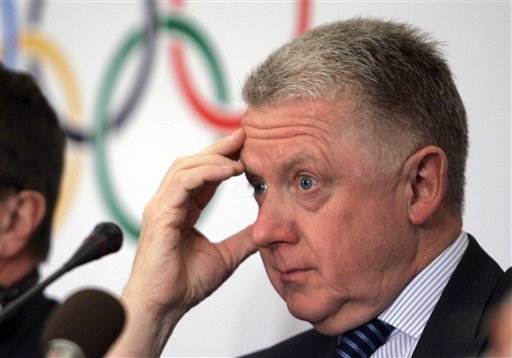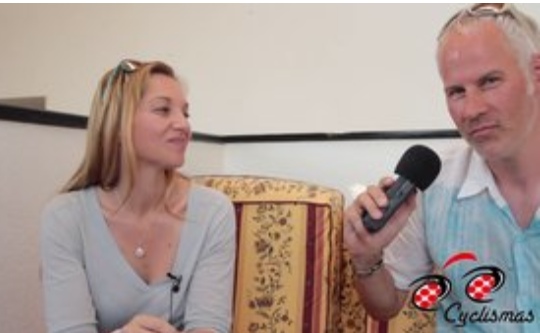The year was 1992. A 51-year-old Hein Verbruggen was president of the UCI and only four years away from joining the hallowed institution that is the International Olympic Committee. As cycling had been forcibly split by the IOC in 1965 into two governing bodies under the auspices of the UCI – one overseeing the professional peloton and one in charged with administering the amateur side – Verbruggen was a man with a plan.
Let’s take a step back for a minute. After the Olympic Games in 1988, the IOC began to realize that allowing “professional” athletes to partake in the Olympic Games could represent a huge financial windfall for the organization, subject to approval by the International Federation that governed the particular sport. This was mainly due to the efforts of the U.S. Olympic folks, who in 1990 were granted the Games for 1996 and were starting to push the issue from a merchandising standpoint. The prospect of putting NBA players in the old Stars and Stripes for Olympic glory would represent a real coup.
Verbruggen, who had cut his teeth in the sport when there was separation between the amateurs and the professionals, commenced his effort towards this end in earnest. Thus, in 1992, the UCI began its mission of reuniting the amateur and professional sides of cycling by officially combining the formerly separate organizations of the FIAC (amateur) and FICP (professional), along with relocating the UCI headquarters to Lausanne. This all took shape at the annual international congress of the UCI in Orlando, Florida at the tail end of 1992, and had the blessing of the IOC’s then-president Samaranch.
Of particular interest, as far as “Henricus the opportunist” is concerned, is the correlation between the election of Verbruggen to membership on the IOC in 1996 and the UCI allowing its professionals to compete in Olympic cycling events as of the 1996 Games. Could Verbruggen’s entry into this select group of sporting elites have been the result of his capitulation to unite the professional and amateur ranks into one entity under the umbrella of the UCI?
Vebruggen alluded to this potential development during a 1993 interview with Jean-Yves Donor, which originally appeared in the French daily newspaper Le Figaro, where Donor asked the question of whether the unification was vital:
Yes, without a doubt. It was indispensable to ensure its universality in the meaning of the clauses defined by the Olympic Movement. It is not so much a sports revolution as a political one, directly associated with the disappearance of the eastern bloc. The Berlin Wall symbolized the border between State amateurism and the professionalism of the west. Indeed, it was the IOC which imposed this division twenty seven years ago. Today, the same IOC, under the leadership of President Samaranch, wishes to receive, uniformly and without distinction, the best athletes in each discipline. Reunification was therefore necessary.
Verbruggen recognized the financial opportunity of this reunification and how it could benefit the UCI from a global perspective, and he noted in the interview that he has wished to focus on elevating the status of track cycling within the discipline, utilizing the Olympics as an opportunity to develop track cycling in places such as Australia and South Africa.
However, an even more interesting perspective of Verbruggen’s in this 1993 interview involved a discussion pertaining to the globalization of the sport of cycling; he indicated that the concept of globalization of the sport by the UCI was a failure, and that the UCI should be supporting the development of cycling at each individual federation’s own pace and style:
Don’t talk to me about globalization. I don’t believe in it any more. All the initiatives taken to that end have failed. Why? Because the race calendar is 95% European. Let us begin at the beginning. Let us start by organizing new races in Germany, England and Portugal, i.e., in countries other than Belgium, France, Italy and Spain. Let us stop thinking for example of exporting our kind of cycling to the United States. It won’t work. We should let the Americans develop their own cycling and stop jeering at their organizations. It is a different continent, a different type of cycling!
In fact, not only was Verbruggen convinced that the UCI-led globalization of the sport would be an epic failure, but he even went on record to state that the UCI had no business organizing races when asked point blank by Donor if the only event they would organize would be the World Championships, which they retained control of beginning in 1995:
Of course. We certainly don’t want to take the place of the usual organizers.
So what happened in the ensuing years? What could have possibly changed the mind of the president of the UCI, causing the organization to turn its back on the mission with which they had been entrusted by the IOC?
Money.
Understand, Hein Verbruggen is a sales and marketing individual. He is driven by revenue equations and business opportunities. He even stated this in the interview with Donor, exposing the driving motivation of his persona, when he commented:
On the subject of the UCI, I hear it said that it thinks a lot about money. Well, yes: the more revenue the UCI has, the stronger it will be. Who can tell me otherwise?
This, unfortunately, has been the legacy passed on to the current regime overseeing the UCI, from when they relocated headquarters to their current and swank digs in Aigle in the year 2000. The UCI isn’t an organization that was meant to be the creator of new races, nor were they intended to supplant the work of the national federations in their mission to grow cycling in a manner suited to each nation’s cycling needs, as spoken by the word of one Hein Verbruggen.
No, just as the IOC before him, Vebruggen was seduced by the siren song of more money in the coffers of his creation, something that continues to this day, as he continues on his own personal odyssey.















No Comments